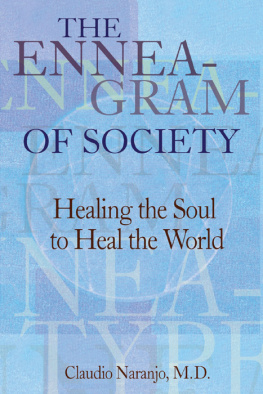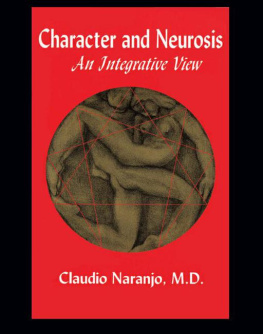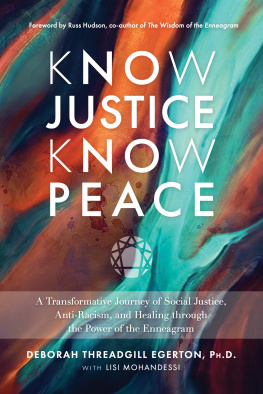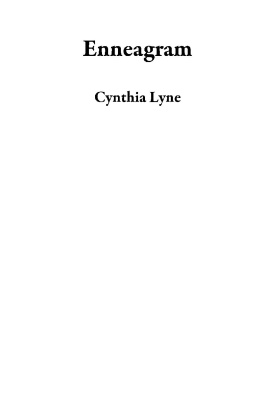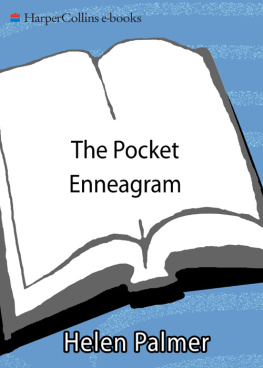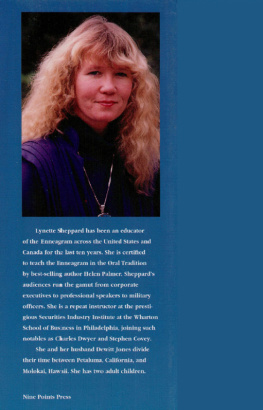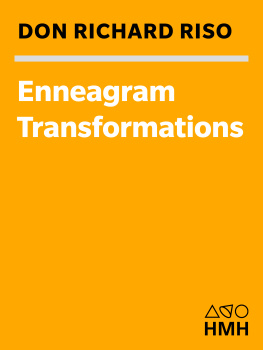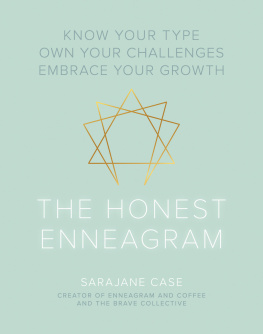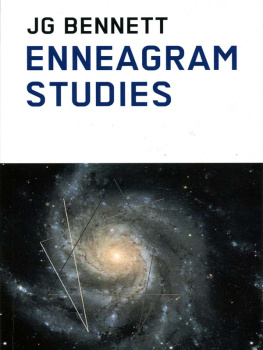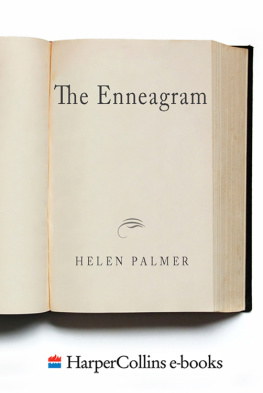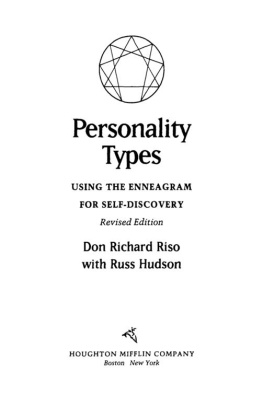
Books by Claudio Naranjo
Character and Neurosis: An Integrative View
The Divine Child and the Hero:
Inner Meaning in Childrens Literature
The End of Patriarchy
and the Dawning of a Tri-une Society
Ennea-type Structures:
Self-Analysis for the Seeker
Enneatypes in Psychotherapy
Gestalt Therapy: The Attitude and Practice
of an Atheoretical Experientialism
The Healing Journey
How to Be
The One Quest
The Psychology of Meditation
Techniques of Gestalt Therapy
Transformation Through Insight:
Enneatypes in Life,
Literature and Clinical Practice
The Way of Silence
and the Talking Cure

Copyright 1995, 2004 by Claudio Naranjo
English translation 2004 by Gateways Books and Tapes
All Rights Reserved. Printed in the U.S.A.
First Printing
Published by:
Gateways Books and Tapes
P.O. Box 370
Nevada City, CA 95959
www.gatewaysbooksandtapes.com
First published in Spain under the title: El Eneagrama de la SociedadMales del Mundo, Males del Alma, Temas de Hoy, 1995; Editorial La Llave edition, 2000.
Translated from the Spanish by Paul Barnes.
No part of this publication may be reproduced or transmitted in any form or by any means, electronic or mechanical, including photocopy, recording, or any information storage and retrieval system now known or to be invented, without permission in writing from the copyright holder, except by a reviewer who wishes to quote brief passages in connection with a review written for inclusion in a magazine, newspaper, broadcast, or internet site.
ISBN: 0-89556-159-X
Library of Congress Cataloging-in-Publication Data
Naranjo, Claudio.
[Eneagrama de la sociedad. English]
The enneagram of society / Claudio Naranjo.
p. cm.
ISBN 0-89556-159-X
1. Enneagram. 2. Deadly sinsPsychology. 3. Enneagram Social aspects. I. Title.
BF698.35.E54N3813 2004
155.26dc22
2003026203
Contents
For Suzy, who lovingly put my dictation on paper.
Foreword to the 1995 Spanish edition
The publishers Temas de Hoy have put me right on the spot by asking me to introduce this book by Doctor Claudio Naranjo, an eminent psychiatrist and professor who moves like a pendulum between Chile and California. How could I, totally ignorant in the doctrine of Christian esoterics and the Enneagram, write something presentable about a book that has this doctrine as its nerve center? Without knowing what I was doing, I took on the commitment. But, morally obliged by my ignorance, I would not have hesitated to go back on the commitment if I had not discovered in these pages a thesis to whose resolution I have dedicated some attention and a goal with which I feel intimately comfortable.
The thesis: that during our century humanity has lived and continues to live in the midst of a profound historical crisis. A thesis that is, in addition, more than obvious: The fact that we are in planetary crisis is self-evident, says Dr. Naranjos first words in the prologue to his book. In a recent book of mine, entitled Hope in a Time of Crisis, I have attempted to sketch the general outlines of this prolonged crisis, and I have shown how nine prominent European thinkers have meanwhile conserved their historical hope. Each one, according to his or her own way of seeing and understanding, has put forthguidelines for individual life and collective life to reorder the world. While they do not plan for a paradisean intrinsically utopian goalthey do envision a more satisfactory life than this to and fro progress from one hot war to another, and then another cold war, and at the end of that, with the living memory of millions of dead, genocides, concentration camps, and the crushing of the adversary, a world in which we find ourselves as needful of historical tranquility in the present and of reasonable faith in what is to come as we did before such a long, atrocious experience. What shall we do then? Definitively despair? Throw in the towel, and, if one has ones own plot of land, lock oneself up in it and just cultivate it? The nine thinkers I contemplated died with the clear awareness that their respective proposals, all noble and reasonable, many of which are frankly attractive, had failed. Some, it is true, accepted them, but the world did not; which did not prevent those with hope from preserving their faith in man until the end of their days. They did not see human existencebetraying its own truth is how one of them proposed defining itas a useless passion. Many other names could have figured among them: one of these, that of Dr. Naranjo.
The goal: to get everyone with professional skills, each one according to his or her own possibilities, to contribute to the universal task of building a more acceptable historical world than the present one. How does the author of this book do this? Claudio Naranjo is a psychiatrist and a fervent devotee of the Christian esoterics that he discovered one day: I can say, he states, that [with this discovery] I was truly born and I entered into a new phase of my life, inspired and directed from beyond what I had known until then about myself. From there, he derives his desire to help others and tocontribute to correcting what he calls ills of the world. His starting point is the description of the nine enneatypes that may be distinguished in the ethical aberrations of the individual psyche. He then goes on to sketch the corresponding nine individual characters that are to be observed in our species and to present the nine modalities that can be distinguished in the substance of human love. Finally, on the basis of these three series of anthropological analyses, he presents the nine ills of the world to us, the most important social ailments that nowadays corrupt collective life. In short, he shows the ethical disturbances of individual life, makes us see how they are all realized socially, and invites each individual to try to better the world by knowing and by improving him or herself. To put it another way: with not merely cognitive, but also practical and uplifting intention, to aspire, in a present-day way, to fulfilling the nosce te ipsum of the ancient Greco-Latin world.
I read recently that when he was young, with the desire to contribute with struggles, not just with words, to the progress of humanity, Wittgenstein left the city, moved to a small mining village, and founded a primary school there for adults. What I want is to improve the world, said one of his pupils. So start by improving yourself, the philosopher replied. Dr. Claudio Naranjo says the same on the last page of his book: If we consider it difficult for a healthy society to exist without the foundation of healthy individuals, it becomes imperative to recognize the political value of individual transformation. Even though this, he adds, is so poorly supported in so many cases by official institutions. With great intellectual finesse, exquisite sensitivity, and an extensive display of knowledge, this is the aim the author seeks inthis book. He very clearly tells us: think about all that will be added unto us if we first of all occupy the kingdom that is to be found within our hearts. I sincerely join him in his wish.
Professor Pedro Lan Entralgo
Member, Spanish Royal Academy
Foreword to the Latin American Edition
What I see, mainly, is that materialism is not enough for the vast majority of people. They are seeking something else.
Next page
